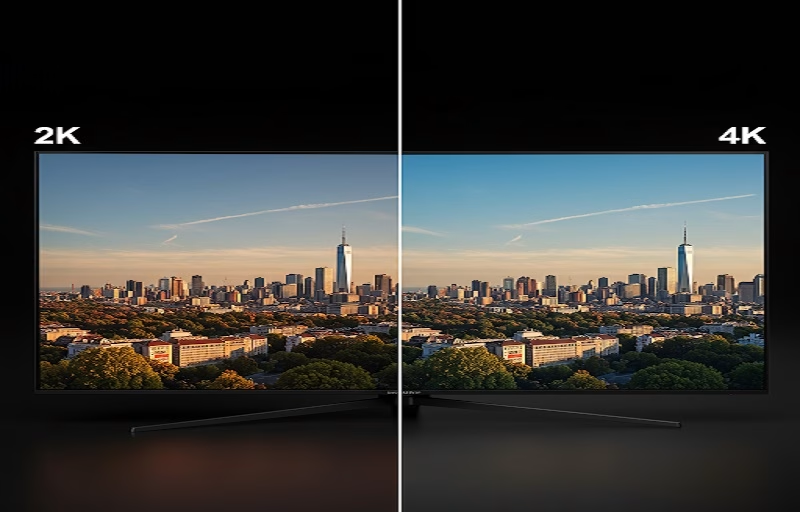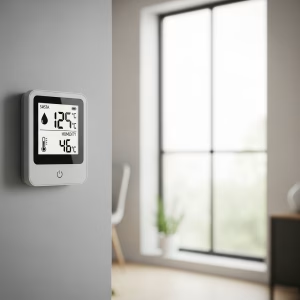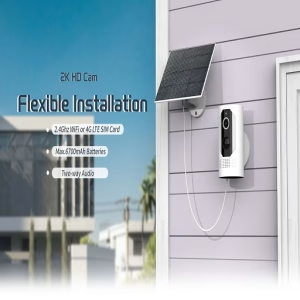2K vs 4K Cameras: Ultimate Comparison
In today’s security-conscious world, wireless cameras offer unparalleled convenience and peace of mind. With options like 2K and 4K, deciding which resolution fits your needs can be challenging. This guide provides an in-depth 2K vs 4K cameras comparison, helping you choose the best security system.
Understanding Resolution: The Cornerstone of Image Clarity
Before we embark on our comparative journey, it’s essential to grasp the concept of resolution. In the realm of digital imaging, resolution refers to the number of pixels that comprise an image. A higher resolution translates to a greater pixel count, resulting in sharper, more detailed visuals.
- 2K Resolution:
- Typically encompasses a resolution of 2560 x 1440 pixels.
- Offers a significant upgrade from the standard 1080p Full HD, providing enhanced clarity and detail.
- 4K Resolution:
- Boasts a resolution of 3840 x 2160 pixels.
- Delivers an astounding level of detail, capturing intricate nuances that are often lost in lower resolutions.
Key Differences Unveiled: 2K vs 4K Cameras
While both 2K and 4K wireless cameras offer impressive image quality, they differ significantly in several crucial aspects:
- Image Clarity and Detail:
- 4K cameras excel in capturing minute details, allowing for precise identification of faces, license plates, and other critical elements.
- 2K cameras provide commendable clarity for general surveillance, but they may struggle to capture finer details at a distance.
- Storage Requirements:
- 4K video files are considerably larger than their 2K counterparts, necessitating ample storage space.
- 2K cameras offer a more storage-friendly solution, reducing the burden on storage devices.
- Bandwidth Consumption:
- 4K video streams demand greater bandwidth, potentially straining network resources.
- 2K cameras consume less bandwidth, making them ideal for environments with limited network capacity.
- Cost Considerations:
- 4K wireless cameras typically command a higher price tag due to their advanced capabilities.
- 2K cameras present a more budget-friendly option without compromising on essential features.
2K vs 4K Cameras Application Scenarios: Tailoring to Your Needs
The choice between 2K and 4K wireless cameras hinges on your specific security requirements:
- 4K Wireless Cameras:
- Ideal for scenarios demanding utmost clarity, such as:
- Large-scale property surveillance
- Critical infrastructure monitoring
- Detailed facial recognition
- Ideal for scenarios demanding utmost clarity, such as:
- 2K Wireless Cameras:
- Suitable for general home security purposes, including:
- Residential surveillance
- Baby monitoring
- Pet observation
- Suitable for general home security purposes, including:
Factors Beyond Resolution: A Holistic Approach
While resolution is a pivotal factor, it’s crucial to consider other aspects that contribute to the overall performance of a wireless camera:
- Night Vision Capabilities:
- Ensure the camera offers reliable night vision for round-the-clock surveillance.
- Motion Detection Sensitivity:
- Opt for cameras with adjustable motion detection to minimize false alarms.
- Two-Way Audio:
- Enable seamless communication with visitors or deter potential intruders.
- Wireless Connectivity:
- Choose cameras with stable and reliable wireless connectivity to ensure uninterrupted surveillance.
- Weather Resistance:
- Select cameras with robust weather resistance for outdoor installations.
The Future of Camera Technology
As technology continues to advance, we can anticipate further enhancements in wireless camera capabilities. Expect to see:
- Artificial Intelligence (AI) Integration:
- AI-powered cameras will offer advanced features like facial recognition, object detection, and behavior analysis.
- Enhanced Connectivity:
- 5G technology will pave the way for faster and more reliable wireless connectivity.
- Improved Image Processing:
- Advanced image processing algorithms will enhance image clarity and detail.
Making the Right Choice: A Personalized Approach
Ultimately, the decision between 2K and 4K wireless cameras rests on your individual needs and preferences. Consider the following factors:
- Security Requirements:
- Assess the level of detail required for your surveillance needs.
- Budgetary Constraints:
- Determine your budget and weigh the cost against the benefits of each resolution.
- Network Capabilities:
- Evaluate your network’s bandwidth capacity to ensure smooth video streaming.
- Storage Capacity:
- Consider your storage needs and opt for a solution that accommodates your requirements.
Conclusion:
In the realm of wireless cameras, 2K and 4K resolutions offer distinct advantages. 4K cameras excel in capturing intricate details, while 2K cameras provide a balance of image quality and affordability. By carefully evaluating your security needs and considering the factors outlined in this guide, you can make an informed decision that ensures the safety and security of your property and loved ones.
Learn more about cameras on chenaniot’s blog post.





